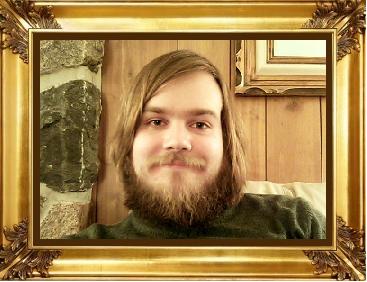The Four C’s. Have you seen this happen?

Someone does something, perhaps with excitement and gusto.

One person responds, “Well, you should have done it this way…“
Another person cracks a joke about how they did it.
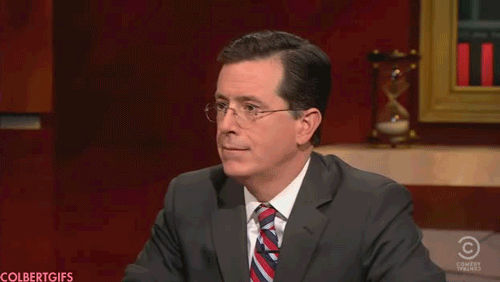
A third person makes a series of comments on the problems with the first person’s actions.
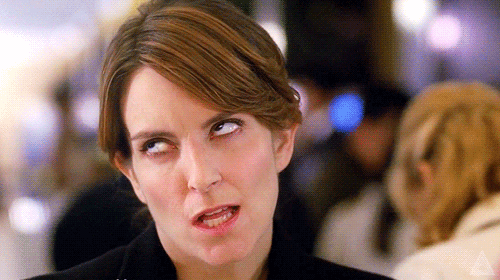
And another sits in a corner and rolls her eyes.
I remember observing this in high school. I sat a table with many of the “outcasts,” myself included. (Though I realized then and realize now that almost everyone feels like an outcast of some sort– different people just deal with it differently. Some embrace that outcast identity and let it fuel their art, work, writing, service, etc., while others work against it by being outgoing and breaking barriers and trying new things. Both have their pros and cons.) Some of us were pretty awkward, myself included. I remember seeing time and time again one of my friends share some story about something she did over the weekend, usually with a lot of energy, and then crumbling under everyone’s “opinions.” And opinions come in a variety of flavors.
- All the cynic had to do was say, “Ok” or “So…” or “Uh huh” with the right amount of snarkiness and she did her job.
- The commentator could make a mention of how my friend waved her hands too much and how he got distracted by that weird movement.
- All the comedian had to do was laugh with the right amount of force– not with the person, but at them. Then everyone would join in. And suddenly a heartfelt story became a comedy routine, unintentionally of course.
- Finally, the critic thought they have something to add, but whatever he said had less to do with my friend and more to do with himself.
The Culture
It’s our culture, I suppose. You know who was Time’s Person of the Year in 2006?
You were. 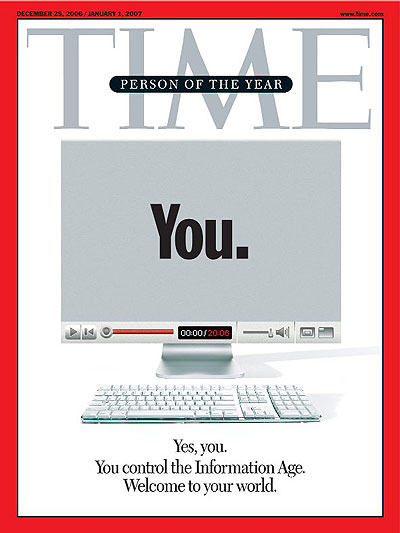
It made sense. With the rise of social media like YouTube and Twitter as well as online campaigns and initiatives, an individual person suddenly had much more power than they ever had before. And even more so today, with things like GoFundMe, Kickstarter, Instagram, Vine, Change.org, etc.
Suddenly anyone can be a critic and review a new album in 140 characters or less. Anyone can be a comedian with a 6 second Vine video. Anyone can become an internet-famous commentator by recording and posting their gameplay. Anyone can be a cynical, snarky, snide writer within the subcultures of Buzzfeed, reddit, imgur, 4chan, and more.
Do you remember your favorite TV show from childhood? I won’t assume you grew up in a specific time, but when I grew up most of the live-action shows– “Clarissa Explains It All,” “Kenan and Kel,” “Pete and Pete,” “Even Stevens,” “Lizzie McGuire”– were about pretty normal kids doing pretty normal things. The following describe the most popular kids TV shows on Nickelodeon and Disney Channel from the past few years.
Following the lives of Austin, an aspiring confident musician, Ally, a quiet talented songwriter and their two friends.
Liv, a popular television star whose show has just finished its run, and Maddie, an outstanding student and school basketball star whose popularity is on the rise until Liv makes a return to their high school.
Two Chicago teens attempt to realize their dream of becoming professional dancers by landing spots on a popular local show.
Adventures of a teenage pop star who keeps her identity secret from even her closest friends by using a disguise on stage.
Sonny, a talented Midwestern girl, has won a nationwide talent search to move to Los Angeles and star in a popular television series. Sonny’s home and work life is documented along with her adjustment to life in the spotlight.
Carly hosts her own home-grown web show, iCarly, Carly and sidekick Sam’s regular Web casts ultimately feature everything from comedy sketches and talent contests to interviews, recipes, and problem-solving.
A look at life for the members of a boy band who are trying to make it big in the music industry.
Aspiring singer Tori Vega navigates life while attending a performing arts high school called Hollywood Arts.
A musical prodigy, gets into a gifted program called Advanced Natural Talents at the local high school.
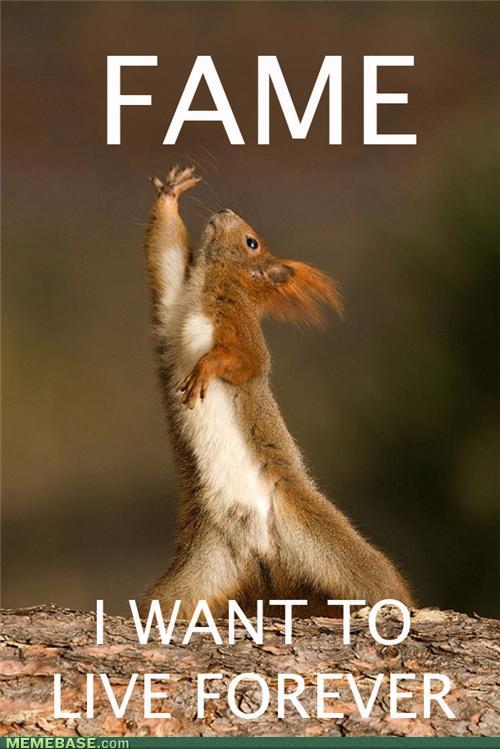 Now there have always been shows about kids or families in the spotlight, like “The Partridge Family” or “The Brady Bunch,” and there are some shows that aren’t about famous kids or kids becoming famous– but the trend over the past few years has carried this message along: You can be FAMOUS! And you SHOULD be FAMOUS! You’re NOTHING if you’re NOT FAMOUS!
Now there have always been shows about kids or families in the spotlight, like “The Partridge Family” or “The Brady Bunch,” and there are some shows that aren’t about famous kids or kids becoming famous– but the trend over the past few years has carried this message along: You can be FAMOUS! And you SHOULD be FAMOUS! You’re NOTHING if you’re NOT FAMOUS!
Perhaps this has nothing to do with people’s tendencies to try and be one of the four C’s, but I can’t help but wonder what will be the long-term effects and how kids that are growing up in this culture will be impacted. It’s possible, no, likely that both situations are simply symptoms of a deeper issue, a deeper disease.
The Disease
A disease called… Selfitis.  No, it’s not a “real” disease– Snopes had to actually call it out because people were afraid the American Psychiatric Association had made it an official disorder. But it is a spiritual disease. I will use an ancient image to describe this disease. This symbol is called Ouroboros and was used in many ancient cultures, and I’ll simply steal this text from WiseGeek to explain it:
No, it’s not a “real” disease– Snopes had to actually call it out because people were afraid the American Psychiatric Association had made it an official disorder. But it is a spiritual disease. I will use an ancient image to describe this disease. This symbol is called Ouroboros and was used in many ancient cultures, and I’ll simply steal this text from WiseGeek to explain it:
Ouroboros may be a symbol of eternity, infinity, and even resurrection, like many ring symbols. Conversely, it may be a symbol of the confines of this world, and when it was adopted into some regional sects of Christianity, it was used in this latter sense. It came to suggest a separation between the world, inside the circle, and infinite divinity without. The “self-devouring” nature of the snake likewise became interpreted as negative, as self-destructive and transitory rather than infinite. Whereas in earlier interpretations, the cyclicality was a disinterested observation about the nature of the world, in Christianity, it became more of a limited “vicious circle” that could only be broken through spirituality.
The disease of self is gluttonous consumption of self. There’s nothing wrong with being unique and contributing meaningful criticism, comedy, commentary, or even cynical maxims– as long as they lead somewhere. God created personalities to reflect His personality. CS Lewis writes in Mere Christianity: 
“The moment you have a self at all, there is a possibility of putting yourself first – wanting to be the centre – wanting to be God, in fact. That was the sin of Satan: and that was the sin he taught the human race. Some people think the fall of man had something to do with sex, but that is a mistake…what Satan put into the heads of our remote ancestors was the idea that they ‘could be like Gods’ – could set up on their own as if they had created themselves – be their own masters – invent some sort of happiness for themselves outside God, apart from God. And out of that hopeless attempt has come…the long terrible story of man trying to find something other than God which will make him happy.”
When we live for ourselves, trying to make ourselves happy, to make ourselves laugh, to convince ourselves that we are clever, to be the wittiest, the funniest, the most interesting, the best, we are ultimately a snake devouring itself.
The Confusion
Artists, writers, musicians– we can all struggle with this part of the creative process. All the time I question myself, “Why am I writing this? Why am I making this? Is it for me? Is it for others? Is it for Christ?” I understand the need to “release” energy– sometimes I write a blog post or make art just to make something, just to get it out of my head, just to be productive. But I recognize it for what it is. Even with this post, I wonder, “Am I just being a critic? A cynic? Just making pointless comments?” But I recognize that much of this, perhaps, is simply opinion– and I choose to share them on my own website (how self-centered of me– EvanWeppler.com? Wow.) as opposed to spouting them off in the grocery store check out aisle. But still, it’s a case of…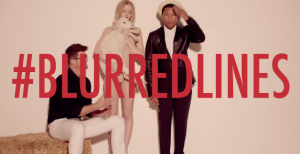 With modern technology, so many lines have been blurred. Surely, YouTube comments are a place to comment on the video you just watched, right? No, apparently it’s where you share your 9-11 conspiracy theories, your “1st to comment” achievements, your insincere praise all for the sake of satire. Surely MySpace (back in 2006) and Facebook and Instagram is a place to share bits of your life with your friends, right? No, apparently it’s a place to bully people, ridicule others, and break spirits. There’s even a social media share button on almost every website you visit, because OF COURSE everyone needs to know you just bought Vitamin C tablets on Amazon…
With modern technology, so many lines have been blurred. Surely, YouTube comments are a place to comment on the video you just watched, right? No, apparently it’s where you share your 9-11 conspiracy theories, your “1st to comment” achievements, your insincere praise all for the sake of satire. Surely MySpace (back in 2006) and Facebook and Instagram is a place to share bits of your life with your friends, right? No, apparently it’s a place to bully people, ridicule others, and break spirits. There’s even a social media share button on almost every website you visit, because OF COURSE everyone needs to know you just bought Vitamin C tablets on Amazon…

It’s one thing to make a joke in a group of friends, where they can see your face and respond appropriately… But sometimes it’s near impossible to understand sarcasm and contextualize jokes on Facebook and Twitter, in text messages and online comment and status updates.
It doesn’t mean you have to walk around on eggshells, but that we need to walk, to talk, to comment with consideration, with grace, questioning, “Is this the right thing to say, the best way to say it, the appropriate place to say it, to the right group of people?” It’s so easy to tweet every thought that comes to your mind– it’s too easy.
The Cure
The cure to Selfitis, then, is to think outside the four walls of Me. To stop being a self-devouring snake, you must find something more appetizing. There are plenty of other things that will fill your stomach– and One that will truly satisfy your hunger. Once again, CS Lewis writes in Mere Christianity, “Look for yourself, and you will find in the long run only hatred, loneliness, despair, rage, ruin, and decay. But look for Christ and you will find Him, and with Him everything else thrown in.”
So what can we do?
What can we do when we find ourself sailing into the four C’s?
I’ll talk about that in The Four C’s: Setting a New Course 
To Be Continued…
